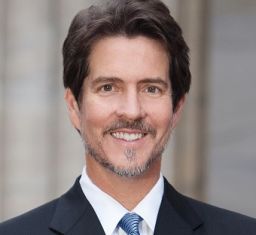Editor’s Note: Page Pate, a CNN legal analyst, is a criminal defense and constitutional lawyer based in Atlanta. He is an adjunct professor of law at the University of Georgia, a founding member of the Georgia Innocence Project, a former board member of the Federal Defender Program in Atlanta and the former chairman of the criminal law section of the Atlanta Bar Association. Follow him on Twitter @pagepate. The opinions expressed in this commentary are his.
Story highlights
Page Pate: The Supreme Court's decision to take up travel ban case is not a "clear victory" for Trump -- if anything, it's a huge loss
What's most significant about the Court's order is not what it does, but what it doesn't do -- reinstate the ban, Pate writes
President Trump was quick to applaud the Supreme Court’s decision partially granting his administration’s request to allow the revised travel ban targeting six Muslim-majority countries to take effect, but it’s not the “clear victory” he claims it is.
The harmful and direct impact of the revised travel ban was so obvious to a majority of the Justices that they stayed a significant part of the measure as soon as they agreed to accept the case. That’s a loss for the Trump administration, no matter how the White House may try to spin it.

What’s most significant about the Court’s order is not what it does, but what it doesn’t do. It doesn’t fully reinstate the travel ban. Only three of nine Justices (Thomas, Alito and Gorsuch) were willing to go that far. Twice as many Justices refused to let the ban go forward as written. And remember, this is not the big bad travel ban that Donald Trump really wanted. This is the version he’s called “politically correct” and “watered down.”
The Court’s order Monday didn’t just poke a hole in the revised travel ban, it drove a truck through it. The Court is unwilling to let the Trump administration stop someone from coming into this country, even temporarily, if that person has a “bona fide relationship” with an individual or entity in the United States. That means that anyone from these six countries can still travel to the United States as long as they can show some legitimate connection to this country. That goes far beyond the green card holders and people with existing visas who were grandfathered in under the revised ban signed earlier this year. That’s another loss for Donald Trump, and it’s huge.
Monday’s ruling also called into question the amount of deference the Trump administration will get on its claim that a president can do pretty much whatever he wants in the area of immigration. While the Court recognized that an American president certainly has significant power when dealing with the potential entry into the United States by people with no connection to the United States, six justices apparently did not see the dire risk for utter devastation that Trump has assured us will happen without the full ban in place.
The justices made it clear that students and those wishing to live with family members should not be affected, and while the required relationship to enter the US has not been fully defined, lawyers and activists who work with immigrants and refugees have told CNN that as they interpret the decision, thousands of people should still be allowed in.
In addition, the Court’s order weakened the ban in regard to refugees. Although the Court will allow the refugee limit to go into effect, refugees with a “bona fide relationship” in the United States will likewise get exceptions. That’s very different from the language of any of Trump’s travel bans, and not at all what he wanted.
Trump campaigned on the idea of a “total and complete shutdown” of Muslims entering the country. He’s never going to get it – or the version of the travel ban he originally wanted. There is nothing in the Supreme Court’s order that suggests a majority of the Court will allow him to implement anything close to an unfettered travel ban. While a majority of Justices on the Court may ultimately allow a temporary suspension of certain individuals with no connection to the United States, that suspension won’t be permanent and it won’t be complete.
It’s hard to see how the Supreme Court’s recent order is a “clear victory” for the Trump administration. It may look like a big win, but that’s only because the travel ban decisions from other courts were such huge losses.
